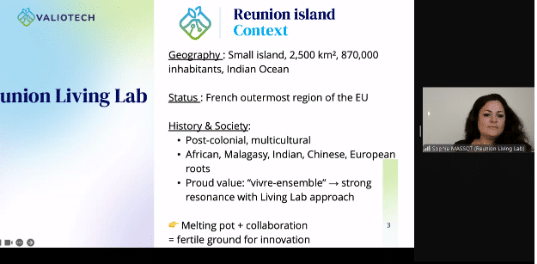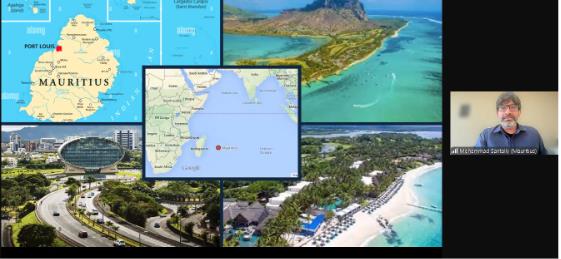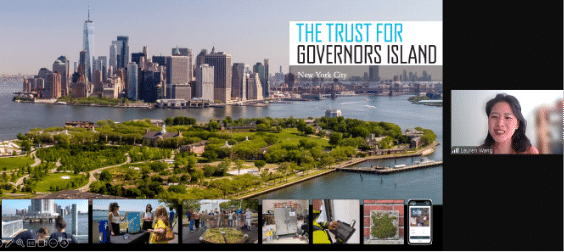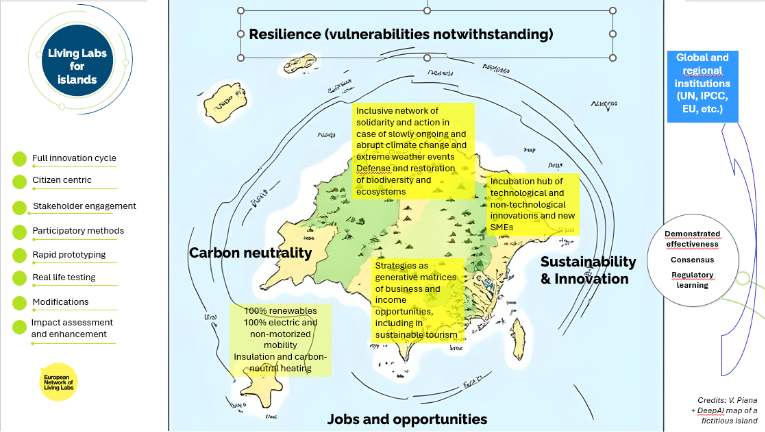New York — 9 September 2025, 15:00 – 17:00 CEST
Islands across all seas can join the growing network of Living Labs with experience, projects, and perspectives, as recently presented with a wealth of examples and insights during the debate which took place at the United Nations General Assembly Science Summit 2025.
Building on the success of the previous editions of ENoLL sessions and missions in New York (2024 and 2022) and online (2023) this event represented and important contribution to the UN Climate Week and to show-casing the way in which science (including citizen science) is key for achieving the Sustainable Development Goals (as demonstrated with dozens of sessions at the Science Summit).
After the welcome address by Martina De Sole (ENoLL Director), Fedra Francocci, Researcher at the prestigious National Research Council of Italy (CNR), whose Living Lab has recently joined the ENoLL Network, has made the keynote speech by highlighting the wide ambition of the strategy for a healthier Mediterranean Sea.
Protecting and restoring ecosystems and biodiversity, preventing and eliminating pollution, making the blue economy carbon-neutral and circular: on these decisive challenges, not only millions of euros are channelled by the EU for current and future projects but existing and further Living labs (federated in the Mediterranean Blue Living Lab Network) are seen as key actors that can appropriately mobilise local and external competencies and energies.
Starting from people – as underlined by Sophie Massot from the Réunion Living Lab – you understand roots and mindsets that allow to reap the many potentials of islands (100% sustainable housing, mobility, energy, agriculture) by creativity, trust, patience and small steps (in turn emphasised by Canadian Andrea McKenna of PEI Living Labs – with examples on bridging the gap between environmentalists and farmers).
If you don’t have a Living Lab, insisted Francesco Picciotto of Sicily Region, everyone has its own idea of the challenges and of the future: in Lampedusa, the small island with an amazing natural legacy but under the inflow of migrants, there is no consensus on how to move forward.
Universities can start from using a Living lab approach to train the teachers, leveraging ICT, but they soon become requested to extend and deepen an institutionalised Living lab and go beyond the borders and includes e.g. farmers, as narrated by the Pro Vice Chancellor of University of Mauritius, Professor Santally.
You do this seriously, involving technological innovators and artists, and with a deep sense of mission, but not forgetting to smile and have fun, as Lauren Wang, Director of Climate Programs at Governors Island (located in front of Manhattan and Brooklyn in New York) concluded.
These examples on the terrain well correspond to typologies and horizontal methodologies of #Living labs, as presented by Evdokimos Kostantinins (Vice Chair at ENoLL). They give hope in a world under stress and segmentation, as reminded by Valentino Piana (Senior Climate Strategist at ENoLL), for the sake of resilience, carbon neutrality, nature protection and restoration.
In his conclusions, Wim De Kinderen (ENoLL President) has invited to follow up these great examples, including at the forthcoming OpenLivingLab Days 2025, to bring action on the ground but also to make a critical mass together.




